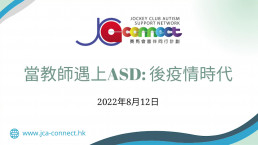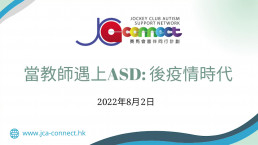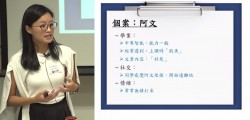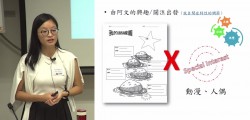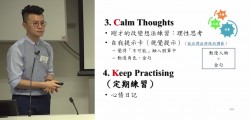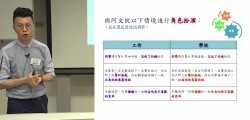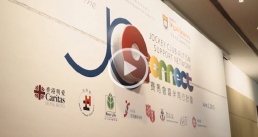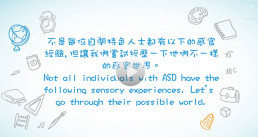World Health Organization Caregiver Skills Training Programme - ASD in Kindergartens and Child Care Centres
Year: 2022
August 22, 2022
Language: Cantonese

JC A-Connect adopted WHO’s “Caregiver Skills Training” with HKU and a number of NGOs in 2018, in which the Programme is designed by experts from WHO, the Parent Association and the autism advocacy organisation in America – “Autism Speaks”. The Programme provides appropriate skills training for carers of children with ASD, developmental disabilities or delays between the ages of 2 and 6, teaching them to use games and family activities as skills to foster children’s learning and development. Since 2021, the Project joined hands with various NGOs to localise the WHO-CST to better meet the needs of Hong Kong caregivers.
As a mean to benefit children with ASD and their caregivers, another webinar on “World Health Organisation Caregiver Skill Training Programme: ASD in Kindergartens and Child Care Centres” was held in late August 2022. Three professionals from various NGOs were invited as speakers to share insights on CST course and focused on teaching six major skills which are applicable to the environment of kindergartens or child care centres. We received positive feedback and the participants look forward to join more training seminars of the same type in the future.
Download Presentation Materials
When Teachers Meet ASD: Post-Pandemic Era (Primary Schools)
Year: 2022
August 12, 2022
Language: Cantonese
The novel coronavirus has been raging for nearly three years. To prevent the spread of the epidemic, schools have been suspended for a long time, which has greatly reduced the time for face-to-face teaching. Consequently, students’ learning has been affected in a varying extent. The impact is even greater to the students with ASD or developmental delays. In view of this, a webinar on “When Teachers Meet ASD: Post-pandemic Era” for primary school teachers was held on August 12, 2022. Dr. Elsa Chiu, Psychologist of Department of Psychology from HKU was invited to explore the impact of the epidemic on students, and share practical resources and skills. Experienced professionals from social welfare organisations discussed group trainings, family-school cooperation and case sharing under the epidemic. The seminar was conducted online and the comments from the participants were positive.
Download Presentation Materials
Teachers Meet ASD: Post-Pandemic Era (Secondary Schools)
Year: 2022
August 2, 2022
Language: Cantonese
The novel coronavirus has been raging for nearly three years. To prevent the spread of the epidemic, schools have been suspended for a long time, which has greatly reduced the time for face-to-face teaching. Consequently, students’ learning has been affected in a varying extent. The impact is even greater to the students with ASD or developmental delays. In view of this, a webinar on “When Teachers Meet ASD: Post-pandemic Era” for secondary school teachers was held on August 2, 2022. Dr. Elsa Chiu, Psychologist of Department of Psychology from HKU was invited to explore the impact of the epidemic on students, and share practical resources and skills. Experienced professionals from social welfare organisations discussed group trainings, family-school cooperation and case sharing under the epidemic. The seminar was conducted online and the comments from the participants were positive.
Download Presentation Materials
「唉...我個仔成日都坐唔穩、坐唔直,咁唔專心點算?」
Year: 2022
我們對感觀的認知,多為視、聽、觸、味、嗅覺五種,事實上,還存在前庭平衡覺 (空間定向的處理)、內在感覺 (內急、肚餓)及本體感覺 (關節活動感)。
有關感覺處理上,有學者指在一般情形下,我們接收到感覺訊息後,訊息進入大腦作整合、處理及決策,再反射給身體作反應,針對本體感覺,自閉特色人士未必能有效協調身體的位置、組織並計劃動作,亦可能較難保持姿勢的穩定及力度的控制,因此較容易出現跌倒、身體向一側傾斜、姿勢僵硬等情況。因此,自閉特色人士或者是因為本體感覺較弱,而較難穩定姿勢,並非因為不專心而導致身體傾斜。
我們的感觀知覺一般會隨不同情況或年紀轉變,會懂得選擇接收訊息,且不會對所有訊息都顯得敏感。有研究顯示,愈90%自閉特色人士在感覺訊息處理上都有不一樣的體驗,有學者指出,部份自閉特色人士的大腦可能在調節、組織及篩選感覺訊息上有差異,令他們對某些感官會有不同程度的過敏、低敏、辨別弱或不協調的反應,或會過度尋求或逃避某些感官刺激,甚至會受外來種種不同環境因素而衍生不安情緒等反應。
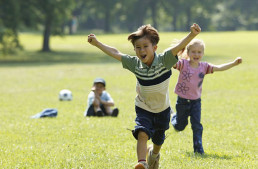
「有八張枱,六個人企喺度,黃色…」
Year: 2022
自閉特色人士其中一個特色是在視覺訊息處理方面,他們傾向集中觀察事物的細節。有學者指出,一般人主要是透過整體審視 (global processing) 來看事物,即是所謂「睇大方向、拉闊件事嚟睇」,而有部份自閉特色人士就傾向較為局部地審視 (local processing) – 「集中觀察事物嘅細節」。
面對一件事或簡單如一幅畫,他們可能會專注圖像細緻的部分,而較為忽略圖像的全貌,他們會從腦海的資料庫中找出所認知的物件,例如白雲、草、藍色的水等等,卻較難把這些資料聚合,並將這些景象及物件連繫起來,變成一個場景或故事。
這項特色為自閉特色人士帶來挑戰的同時,亦可能成為他們獨特的才能,因為他們會有更大機會看到一般人察覺不到的細節,例如有公司專門聘請自閉特色人士於程式編碼上。
如果能及早介入,給予指引並加以訓練,其實,自閉特色人士都會與一般人一樣可以整體審視身邊的事物。清楚自閉症譜系障礙的特色會令你更了解自閉特色人士,他們與一般人其實並沒有太大分別。
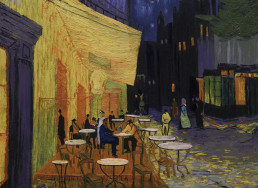
「我都係講事實…」
Year: 2022
一般情況下,我們在幼童時期已可辨別照顧者表情,以作出不同反應,自閉特色人士其中一個特色是比較缺乏社交解讀能力,對他們而言,要了解對方感受、臉部表情、肢體動作、音調等等,都可能是一件令人一頭霧水的事情。 自閉特色人士與人交談時,比較不懂得理解別人角度及感受,甚至連自己的情緒也可能不懂表達,對於別人的弦外之音更是無法掌握。
有育有自閉特色人士的家長分享指,兒子在一次美術堂上被老師邀請品評同場同學有關理想生活環境的繪圖時,兒子說︰「間屋都唔對稱,棵樹同屋嘅比例又唔啱,樹同間屋既大細竟然一樣?」另一同學見狀立即用手肘示意,豈料兒子只表示︰「你隻手掂到我喇!」
顯然,兒子較難明白非直接的溝通模式,這可能與腦部不同區域運作有關,令他難以理解別人的想法和感受,因此較難有效地與人交流。
究竟自閉特色人士還有什麼特色?

Wrap-up and Social Inclusion
Year: 2022
Subscribe to Our Newsletter
Please keep in touch with us and we will keep you updated with
the latest news, events and news.
啟動儀式及記者招待會
Year: 2022
Subscribe to Our Newsletter
Please keep in touch with us and we will keep you updated with
the latest news, events and news.
喜伴共融同樂日──感官之旅
Year: 2022
Subscribe to Our Newsletter
Please keep in touch with us and we will keep you updated with
the latest news, events and news.



